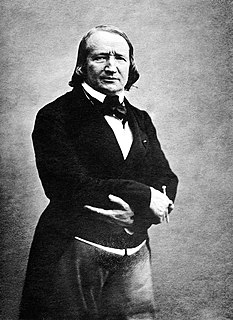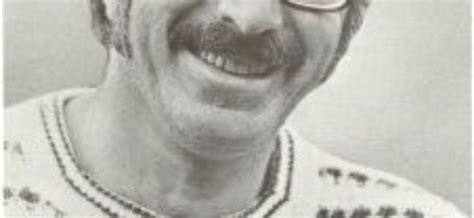A Quote by Henry David Thoreau
The word which is best said came nearest to not being spoken at all, for it is cousin to a deed which the speaker could have better done. Nay, almost it must have taken the place of a deed by some urgent necessity, even by some misfortune, so that the truest writer will be some captive knight, after all. And perhaps the fates had such a design, when, having stored Raleigh so richly with the substance of life and experience, they made him a fast prisoner, and compelled him to make his words his deeds, and transfer to his expression the emphasis and sincerity of his action.
Quote Topics
Action
After
Almost
Being
Best
Better
Came
Captive
Compelled
Could
Cousin
Deed
Deeds
Design
Done
Emphasis
Even
Experience
Expression
Fast
Had
Having
Him
His
His Ex
Knight
Life
Made
Make
Misfortune
Must
Nay
Nearest
Necessity
Perhaps
Place
Prisoner
Raleigh
Said
Sincerity
Some
Speaker
Spoken
Substance
Taken
Transfer
Truest
Urgent
Which
Will
Word
Words
Writer
Related Quotes
A great dread fell on him, as if he was awaiting the pronouncement of some doom that he had long foreseen and vainly hoped might after all never be spoken. An overwhelming longing to rest and remain at peace by Bilbo's side in Rivendell filled all his heart. At last with an effort he spoke, and wondered to hear his own words, as if some other will was using his small voice. "I will take the Ring," he said, "though I do not know the way.
Ideas are powerful things, requiring not a studious contemplation but an action, even if it is only an inner action. Their acquisition obligates each man in some way to change his life, even if it is only his inner life. They demand to be stood for. They dictate where a man must concentrate his vision. They determine his moral and intellectual priorities. They provide him with allies and make him enemies. In short, ideas impose an interest in their ultimate fate which goes far beyond the realm of the merely reasonable.
No one should be surprised at the difficulty of faith, if there is some part of his life where he is consciously resisting or disobeying the commandment of Jesus. Is there some part of your life which you are refusing to surrender at his behest, some sinful passion, maybe, or some animosity, some hope, perhaps your ambition or your reason? ... How can you hope to enter into communion with him when at some point in your life you are running away from him?
Every man, however hopeless his pretensions may appear, has some project by which he hopes to rise to reputation; some art by which he imagines that the attention of the world will be attracted; some quality, good or bad, which discriminates him from the common herd of mortals, and by which others may be persuaded to love, or compelled to fear him.
I buried him with mine own hands, in a place he showed me once when I was a squire at Storm’s End. No one shall ever find him there to disturb his rest.” He looked at Jaime defiantly. “I will defend King Tommen with all my strength, I swear it. I will give my life for his if need be. But I will never betray Renly, by word or deed. He was the king that should have been. He was the best of them.
The mockery made him feel an outsider; and feeling an outsider he behaved like one, which increased the prejudice against him and intensified the contempt and hostility aroused by his physical defects. Which in turn increased his sense of being alien and alone. A chronic fear of being slighted made him avoid his equals, made him stand, where his inferiors were concerned, self-consciously on his dignity.
I admire addicts. In a world where everybody is waiting for some blind, random disaster or some sudden disease, the addict has the comfort of knowing what will most likely wait for him down the road. He's taken some control over his ultimate fate, and his addiction keeps the cause of his death from being a total surprise.
The act of writing bears something in common with the act of love. The writer, at his most productive moments, just flows. He gives of that which is uniquely himself. He makes himself naked, recording his nakedness in the written word. Herein lies some of the terror which frequently freezes a writer, preventing him from producing. Herein, too, lies some of the courage that must be entailed in letting others learn how one has experienced or is experiencing the world.
It is a mistake to talk about the artist looking for his subject. In fact, the subject grows within him like a fruit and begins to demand expression. It is like childbirth. The poet has nothing to be proud of. He is not master of the situation, but a servant. Creative work is his only possible form of existence, and his every work is like a deed he has no power to annul. For him to be aware that the sequence of such deeds is due and ripe, that it lies in the very nature of things, he has to have faith in the idea; for only faith interlocks the system of images for which read system of life.
The longer I live, the more it grieves me to see man, who occupies his supreme place for the very purpose of imposing his will upon nature, and freeing himself and his from an outrageous necessity--to see him taken up with some false notion, and doing just the opposite of what he wants to do; and then, because the whole bent of his mind is spoilt, bungling miserably over everything.
And what shall he suffer who slays him who of all men, as they say, is his own best friend? I mean the suicide, who deprives himself by violence of his appointed share of life. Not because the law of the state requires him. Nor yet under the compulsion of some painful and inevitable misfortune which has come upon him. Nor because he has had to suffer from irremediable and intolerable shame, but who from sloth or want of manliness imposes upon himself an unjust penalty.
That Francis Bacon retains his reputation gained, is not strange to any that knows him. The unusual words wherewith he had spangled his speech, were rather gracious for their propriety than strange for their novelty, and like to serve both for occasions to report and means to remember his argument. Certain sentences of his , somewhat obscure, and as it were presuming upon their capacities will, I fear, make some of them rather admire than commend him. In sum, all is as well as words can make it, and if it please Her Majesty to add deeds, the Bacon may be too hard for the Cook.


































